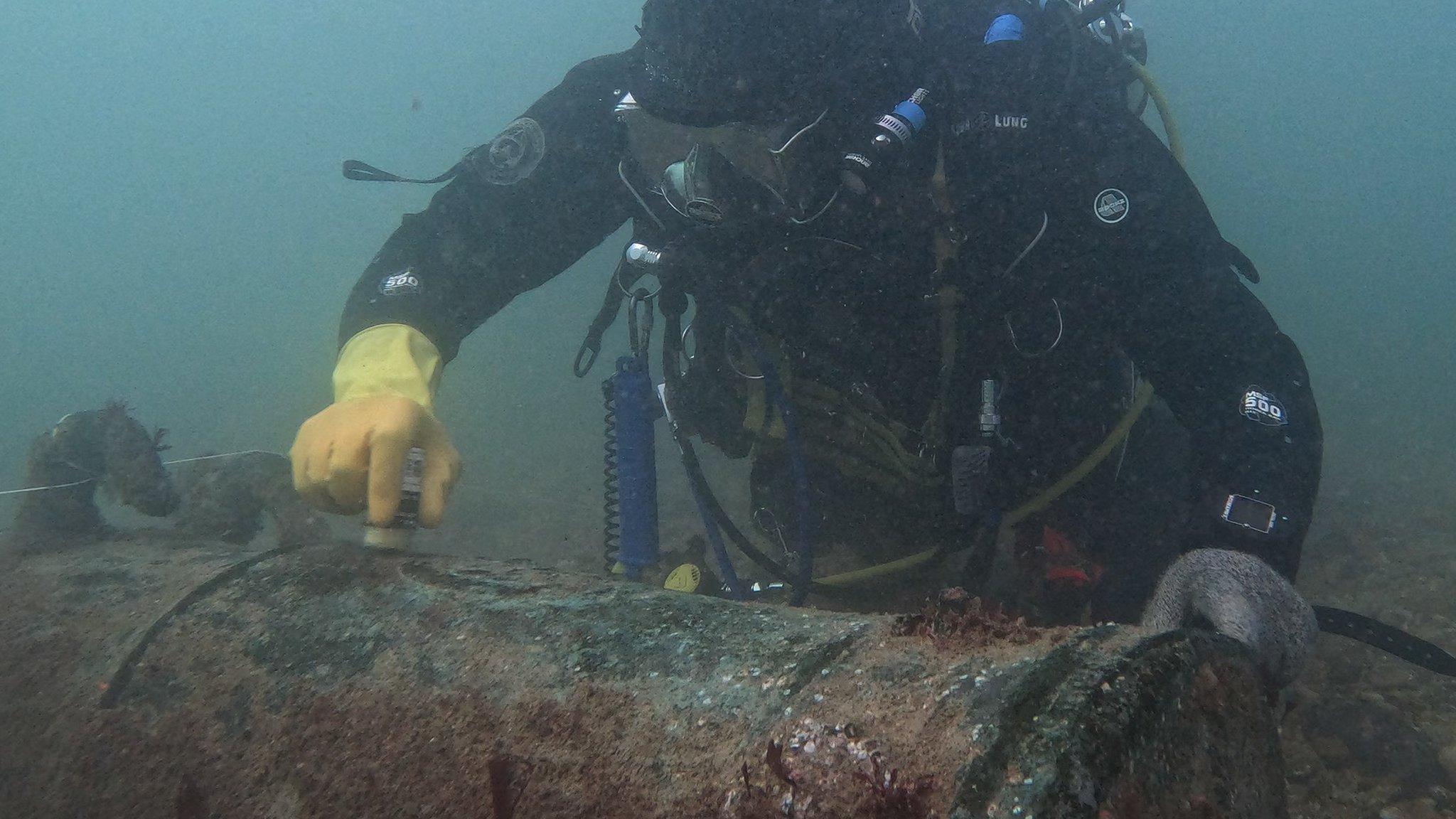Archaeology: New tech protecting shipwrecks underwater
- Published
- comments

The technology hopes to protect the story of England's maritime past
Some of the most historically important shipwreck sites around England's coastline are getting protected using new technology.
For the first time in the UK artefacts including cannons will be scientifically marked, so if parts of them are stolen, the thief can be linked back to the crime scene.
Historic England are behind the project which will protect 57 sites.
It hopes the new technology will act as a deterrent for any potential underwater thieves.
The technology will be used at 57 sites
The use of the new technology is part of the Heritage Watch scheme, which aims to help stop crime at heritage sites at sea and encourages the public to help too.
The technology has been tested on dives this summer and Duncan Wilson, who is the chief executive at Historic England, says shipwrecks need protecting as they tell the story of England's seafaring past.
He said "marking of artefacts is a great leap forward in helping to protect them."
The ship was wrecked off the coast of England while carrying slabs of fine Italian marble, sinking in 1672
The 57 sites will have the highest level of protection under the Protection of Wrecks Act 1973, meaning only licensed divers can dive them and their contents are protected by law.
One of the protected sites being marked is the Klein Hollandia, a mysterious warship that's identity was only discovered earlier this year.
The experts say its condition is remarkable and could offer lots of important information about how 17th century Dutch ships were built, as well as the activities of this particular warship during its final voyage before it eventually sank.
Mark Beattie Edwards, who is a licensee of the site, said they are very happy it's been chosen for protection.
He said: "Being so far offshore, it is vulnerable to illegal visits and recoveries. This new technology will give us piece of mind."
- Published10 March 2022
- Published27 January 2023
- Published5 December 2015
